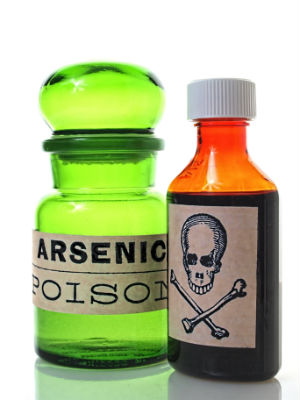If you’re a fan of classic murder mysteries, chances are you know how deadly arsenic can be. There are two forms of this toxic metal that we need to worry about: organic and inorganic. Now, organic arsenic is completely different than the organic label on food. In arsenic, it simply refers to the presence of carbon. It’s also seen as the lesser of two evils. “Inorganic” arsenic, though, is nasty stuff, with lots of health concerns attached to it. [1] (more…)







